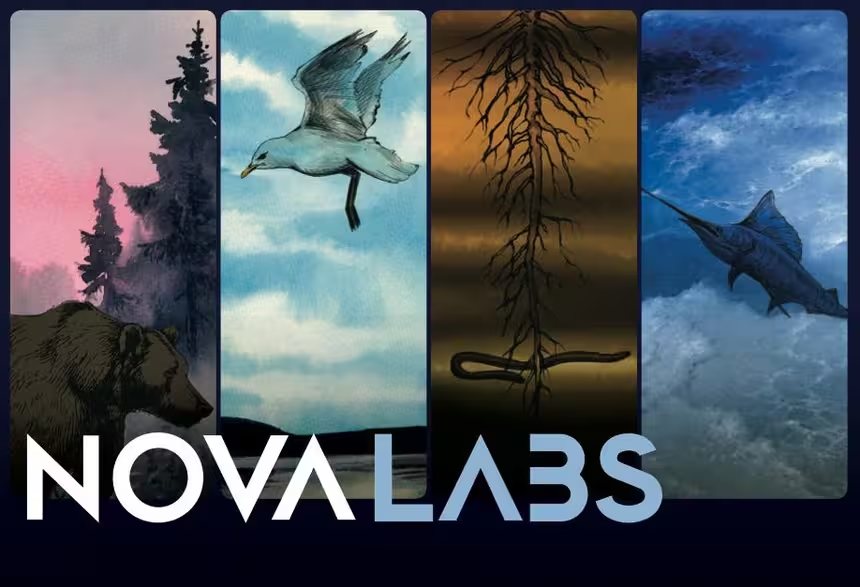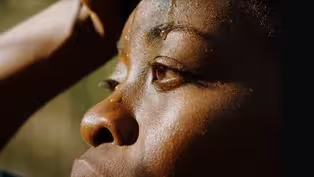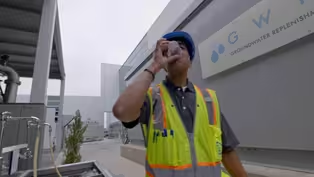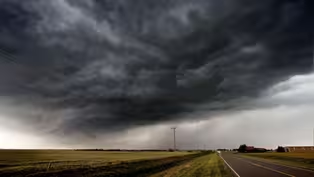
Hurricanes Are Getting More Destructive
Clip: Season 50 Episode 5 | 4m 15sVideo has Closed Captions
Recent hurricanes blow away records for destruction, costing over a trillion dollars in 20 years.
For 100-million Americans living in coastal communities, more destructive storms are an increasing worry. Some are starting to confront the possibility of losing their land entirely.
Problems playing video? | Closed Captioning Feedback
Problems playing video? | Closed Captioning Feedback
National Corporate funding for NOVA is provided by Carlisle Companies and Viking Cruises. Major funding for NOVA is provided by the NOVA Science Trust and PBS viewers.

Hurricanes Are Getting More Destructive
Clip: Season 50 Episode 5 | 4m 15sVideo has Closed Captions
For 100-million Americans living in coastal communities, more destructive storms are an increasing worry. Some are starting to confront the possibility of losing their land entirely.
Problems playing video? | Closed Captioning Feedback
How to Watch NOVA
NOVA is available to stream on pbs.org and the free PBS App, available on iPhone, Apple TV, Android TV, Android smartphones, Amazon Fire TV, Amazon Fire Tablet, Roku, Samsung Smart TV, and Vizio.
Buy Now

NOVA Labs
NOVA Labs is a free digital platform that engages teens and lifelong learners in games and interactives that foster authentic scientific exploration. Participants take part in real-world investigations by visualizing, analyzing, and playing with the same data that scientists use.Providing Support for PBS.org
Learn Moreabout PBS online sponsorship(dramatic music) - Hurricanes are my forte.
It's what I'm an expert at.
And I, myself, have been so surprised over the years to see the number of rapid intensification cycles that hurricanes are going through.
(dramatic music continues) - [Narrator] Hurricanes are fueled by energy from the ocean.
Today, during hurricane season, the Gulf of Mexico is about one to two degrees warmer than it was in the 1980s.
And that warmer water supercharges storms.
- I'm on the air saying, "Look at this thing.
Look at what this hurricane is doing."
So a historic event in itself.
(dramatic music) - [Narrator] Recent hurricanes blow away previous records for destruction.
(dramatic music continues) Costing over $1 trillion in 20 years and counting.
- [John] We're not necessarily seeing more hurricanes, but we're seeing that a greater proportion of them are, indeed, becoming these monsters.
(dramatic music continues) - [Narrator] One place especially hard hit: the coast of Louisiana, where the Mississippi River meets the Gulf of Mexico, creating about 6,000 square miles of river delta wetlands.
Here, the sea is swallowing the land.
- We are on Grand Bayou in Grand Bayou Village.
This is my home.
And this is the home of my people, and we've been here for a little more than 400 years.
- [Narrator] Rosina Philippe is an elder of the Atakapa-Ishak/Chawasha tribe.
- A lot of places where you see water, it was land, and not just land, high land, hills, hard, hard dirt.
But now, no more, none of that anymore.
The land has washed away.
- [Narrator] One study found sea level here rising at a rate four times the global average.
Elder Chief Shirell Parfait-Dardar, a member of a nearby community, the Grand Caillou Dulac Band of the Biloxi-Chitimacha-Choctaw tribe, is also seeing her home threatened by land loss.
(somber music) - We call these skeleton trees.
When you look out and you see these trees, you know that land was there at one time, right?
But all that's left is the submerged tree in water, holding on for as long as it can.
- [Narrator] The impacts of more intense storms and rising seas are felt here now, in large part, because the land has already been eroded by human activity.
(somber music continues) Fed by rivers and streams across much of the continent, the Mississippi River picks up sediment and would naturally deposit it in the delta, constantly replenishing the wetlands.
(machine whirring) But starting in the 1900s, a series of federal construction projects began to interfere with that natural system.
Levees to prevent flooding, (bomb exploding) dams to improve navigation.
(boat horn honking) The result: less flooding in some communities and more river trade, but also less sediment reaching the wetlands.
And then, starting in the 1930s, oil and gas companies cut 10,000 miles of canals through the wetlands to reach their wells, speeding erosion even more.
- And so all of this is coming together in a way that we used to have this really strong protective barrier along the Gulf Coast that just is not there anymore.
Then you add rising sea levels (water crashing) to all of that, and it's eating away even more so at our natural barriers that we have.
(dramatic music) - [Narrator] Since 1935, 1/4 of Louisiana's coastline has vanished.
That's an area about the size of Delaware.
And every 100 minutes, water claims on average another football field's worth of land.
How Coating Roads Could Help Beat the Heat
Video has Closed Captions
Clip: S50 Ep5 | 1m 48s | A pilot program in Phoenix, Arizona aims to cool the city by making the ground less hot. (1m 48s)
How Extreme Heat Overwhelms the Human Body
Video has Closed Captions
Clip: S50 Ep5 | 1m 26s | When it comes to extreme weather, heat can be a “silent killer.” (1m 26s)
How Sewage Becomes Drinking Water
Video has Closed Captions
Clip: S50 Ep5 | 2m 51s | How do you make wastewater drinkable? It starts at the sewage treatment plant. (2m 51s)
Video has Closed Captions
Preview: S50 Ep5 | 30s | Americans use ancient wisdom and new technology to fight extreme weather. (30s)
Providing Support for PBS.org
Learn Moreabout PBS online sponsorship
- Science and Nature

Capturing the splendor of the natural world, from the African plains to the Antarctic ice.













Support for PBS provided by:
National Corporate funding for NOVA is provided by Carlisle Companies and Viking Cruises. Major funding for NOVA is provided by the NOVA Science Trust and PBS viewers.






